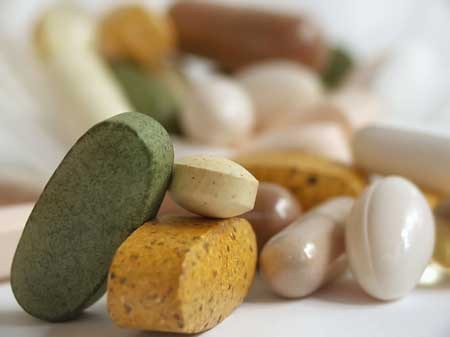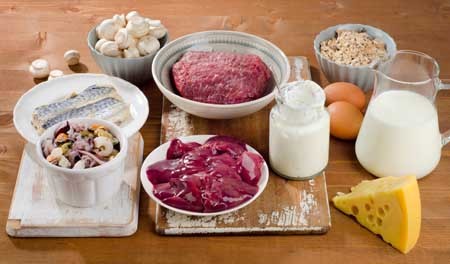Antipsychotic Use During Pregnancy Most Likely Safe
A new study suggests that women can continue using antipsychotic medications during the first trimester of pregnancy without meaningfully increasing the risk of birth defects in their offspring.
The study, by Krista F. Huybrechts and colleagues in the journal JAMA Psychiatry, looked at Medicaid users who filled at least one prescription for an antipsychotic medication during their first trimester of pregnancy, when an embryo’s vital organs are formed, and went on to have a live birth. Birth defects, including cardiac malformations, in these children were identified in the first 90 days after delivery and compared to the number of such abnormalities in the children of women on Medicaid who did not receive a prescription for an antipsychotic drug during the first trimester of pregnancy. The number of abnormalities was slightly higher in the children of women who had received atypical antipsychotics than in those who had not, and slightly lower in the children of women who had received a typical antipsychotic than in those who had not.
Huybrechts and colleagues concluded that taking an antipsychotic medication during the first trimester of pregnancy does not meaningfully increase the risk of birth defects in the offspring.
The children of women who took the antipsychotic risperidone did have a small increased risk of birth defects, including cardiac malformations. The researchers called for additional study of risperidone use during pregnancy.
Study Shows FDA Drug Safety Warning on Citalopram Backfired
In August 2011, the US Food and Drug Administration issued a warning that doses of the selective serotonin reuptake inhibitor (SSRI) antidepressant citalopram (Celexa) that exceeded 40mg/day could prolong the QT interval, a measure of heart rate used to diagnose abnormal heart rhythms. A study of records from the Veterans Health Administration showed that 35,848 veterans whose dose of citalopram was reduced from an average of 64mg/day to under 40mg/day faced increased deaths, hospitalizations for any cause, and hospitalizations for depression specifically after the reductions.
The FDA warning meant to prevent heart problems had the unintended consequence of increasing hospitalizations and deaths among the veterans affected. These findings by Thomas S. Rector and colleagues were published in the American Journal of Psychiatry in 2016.
Editor’s Note: There are some similarities between this case and findings by researchers Andrew Nierenberg and Andrew Stoll, who noticed that patients taking 40mg/day of fluoxetine (Prozac) had better long-term outcomes than those taking 20mg/day, even though those taking 40mg were more ill and more likely to relapse at the start of the study.
Researchers Ellen Frank and David Kupfer found that 90% of unipolar depressed patients relapsed when their antidepressant doses were halved, even though they had been stable for 5 years before the change.
These and the findings from Rector and colleagues lead this editor to believe that reducing the dosage of effective treatments should not be done without reason—that is, in the absence of side effects, or simply to achieve the minimal effective dose. Dose reductions without cause not only may increase the risk of relapse, but may also put the patient at increased risk of developing tolerance to the medication, for example hastening the onset of ‘Prozac poop-out.’
When long-term maintenance drug therapy is going well, it may be best to be conservative and stay the course. Conversely, in the absence of a good long-term response, be as active and creative as possible to achieve mood stabilization.
Oral Ketamine Relieves Depression in Patients with Chronic Pain
Ketamine, which is used as an anesthetic at higher doses, can also relieve depression within hours when delivered intravenously. A 2016 study by Morteza Jafarinia and colleagues in the Journal of Affective Disorders suggests that oral ketamine may be helpful in the treatment of mild to moderate depression in people with chronic pain.
The study compared 150mg daily doses of oral ketamine to 150mg daily doses of the anti-inflammatory pain reliever diclofenac over 6 weeks. When interviewed at week 3 and week 6, the ketamine group reported significantly fewer symptoms of depression than the diclofenac group.
Carnitine Reduced Body Weight and Insulin Resistance in Women with PCOS
Carnitine is an amino acid derivative sometimes used as a nutritional supplement. A 2016 study by Mansooreh Samimi and colleagues published in the journal Clinical Endocrinology found that carnitine supplementation reduced weight and insulin resistance in women with polycystic ovary syndrome (PCOS).
In the study, 60 overweight women with PCOS were randomized to receive either 250mg/day carnitine supplements or placebo. After 12 weeks, the carnitine group had lost an average of about 3 kg compared to the placebo group, and centimeters off their waist and hip measurements. Carnitine supplementation also lowered fasting blood glucose, insulin levels in blood, and insulin resistance compared to placebo.
Certain ‘Nutraceuticals’ Aid Depression Treatment
A systematic review of research on the value of pharmaceutical-grade nutritional supplements, or ‘nutraceuticals,’ in depression treatment has found that several do indeed improve depression symptoms.
The 2016 review by Jerome Sarris and colleagues in the American Journal of Psychiatry found that the following nutraceuticals primarily produced positive results compared to placebo: omega-3 fatty acids (primarily EPA or ethyl-EPA); vitamin D; l-methylfolate (a more potent form of folic acid); and S-adenosyl methionine or SAMe, a beneficial compound created from toxic homocysteine with the help of folate.
Editor’s Note: Most of these compounds can also be useful in bipolar depression. Omega-3 fatty acids and vitamin D are helpful to many patients. L-methylfolate is particularly helpful to the 30% of the population with a MTHFR deficiency that interferes with the ability of folate to break down homocysteine. SAMe is an exception—while it is effective in unipolar depression, it may cause switching into mania in patients with bipolar disorder.
The researchers identified a few additional nutraceuticals that each had one study supporting their use—creatine, sometimes used by weightlifters to provide extra energy to muscles; folinic acid, which can protect bone marrow and other cells during chemotherapy; and a combination of amino acids.
Results from studies that compared other compounds to placebo were mixed. Those included studies of zinc, folic acid, vitamin C, and the amino acid tryptophan. A study of inositol, a compound found in plants that is not normally digestible, had nonsignificant results.
No serious side effects were observed in any of the studies of nutraceuticals, though some caused minor digestive disturbances.
Editor’s Note: Another beneficial nutraceutical that did not appear in the review article is N-acetylcysteine. In 6- to 8-week studies, NAC improved depression and anxiety compared to placebo. It also improved bipolar depression and reduced many habits and additions in non-bipolar patients. These include cocaine and gambling addition, alcohol and nicotine use, trichotillomania (compulsive hair-pulling) and obsessive compulsive disorder (OCD).
Tart Cherry Juice Improved Recovery from Exercise in Soccer Players
A recent study found that tart cherry juice helped soccer players recover after muscle-damaging exercise better than a placebo.
The 16 athletes in the study were randomly assigned to receive either a Montmorency tart cherry concentrate mixed with water twice a day for four days prior to and three days following exercise, or a drink with the same number of calories but less than 5% fruit content on the same schedule.
The semiprofessional male soccer players (aged 21 to 29) showed better performance on sprints, jumps, and agility tests; less inflammation; and less muscle soreness when taking tart cherry juice compared to the placebo drink.
Editor’s Note: Tart cherry juice is rich in polyphenols, chemicals found in plants with anti-oxidant effects. The juice also has melatonin-like effects, improving sleep in people with insomnia.
Cinnamon Improves Memory in Mice
A recent study found that mice that ate more cinnamon got better and faster at learning. In the study, published in the Journal of Neuroimmune Pharmacology in 2016, separated mice into good learners and poor learners based on how easily they navigated a maze to find food. After the poor learners were fed cinnamon for a month, they could find the food more than twice as quickly as before.
The benefits of cinnamon come from sodium benzoate, a chemical produced as the body breaks down the cinnamon. Sodium benzoate enters the brain and allows the hippocampus to create new neurons.
Feeding cinnamon to the poor learning mice normalized their levels of receptors for the neurotransmitter GABA, closing the gap with good learners. Sodium benzoate also improved the structural integrity of some brain cells. Cinnamon also can help sensitize insulin receptors.
Doctors hope these findings may eventually contribute to treatment research on Alzheimer’s and Parkinson’s diseases.
Cinnamon should be consumed in moderate quantities because the Chinese variety most commonly found in North American supermarkets has high levels of coumarin, a compound that can be toxic to the liver when consumed in large quantities. Ceylon (Sri Lankan) cinnamon has lower levels of coumarin.
Vegan Diet Can Lead to Vitamin B12 Deficiency
Vitamin B12 deficiency is a risk associated with a vegan diet. B12 deficiency can lead to depression, anemia, and even irreversible neuron damage, according to researcher Drew Ramsey, who spoke on the topic at the 2016 meeting of the American Psychiatric Association.
A study of vegans showed that 52% were deficient in vitamin B12, while another 23% had insufficient levels of the vitamin. B12 is found in the highest concentrations in certain seafoods and liver. It is also found in dairy products, eggs, fortified breakfast cereals, and is available in supplement form.
Women who eat a vegan diet while pregnant may not be providing their offspring with enough nutrients, according to researcher Emily Deans, who also spoke at the meeting. A case report on 30 vegan mothers found that 60% of their offspring had developmental delays and 37% showed cerebral atrophy.
Deans said that eating no meat is associated with higher rates of depression, anxiety, and worse quality of life.
Ramsey believes that while the North American diet is probably weighted too heavily toward animal products, seafood remains an important source of B12.
Eat More Plants for Health
A long-term study of 130,000 nurses and other health professionals found that eating more plants lowered risk of death over several decades. A 3% increase in calories from plant protein was associated with a 10% lower risk of death during the study period.
The research, by Mingyang Song and colleagues in the journal JAMA Internal Medicine, found that the more animal protein consumed, the higher the risk of death from cardiovascular disease during the study. A 10% increase in the proportion of calories from animal protein was associated with a 2% increase in deaths. This association was worse for people who were obese or heavy drinkers.
Song and colleagues suggest that plants are a better source of calories than are animal products, and that fish or chicken are better choices than processed red meat.
Researcher Dariush Mozaffarian recommends eating plant-based foods like fruits, nuts, seeds, beans, and non-starchy vegetables, but avoiding those like French fries or white bread that have little nutritional value.
Schizophrenia Drug May Treat ADHD with Impulsive Aggression
The atypical antipsychotic drug molindone was used to treat schizophrenia for decades before it was pulled from the market in 2010 for business reasons. Now Supernus Pharmaceuticals is studying whether a reformulation of the drug may be used to treat attention deficit hyperactivity disorder (ADHD) that is accompanied by impulsive aggression.
Supernus tested an extended-release form of the drug in 118 children aged 6–12 with ADHD and impulsive aggression. They received either placebo or between 12mg and 54mg per day of molindone for 39 days. Those children who received between 12mg and 36mg per day of molindone showed fewer symptoms of impulsive aggression that those who received placebo. Side effects included headache, sedation, and increased appetite. Clinical trials of molindone will continue.











